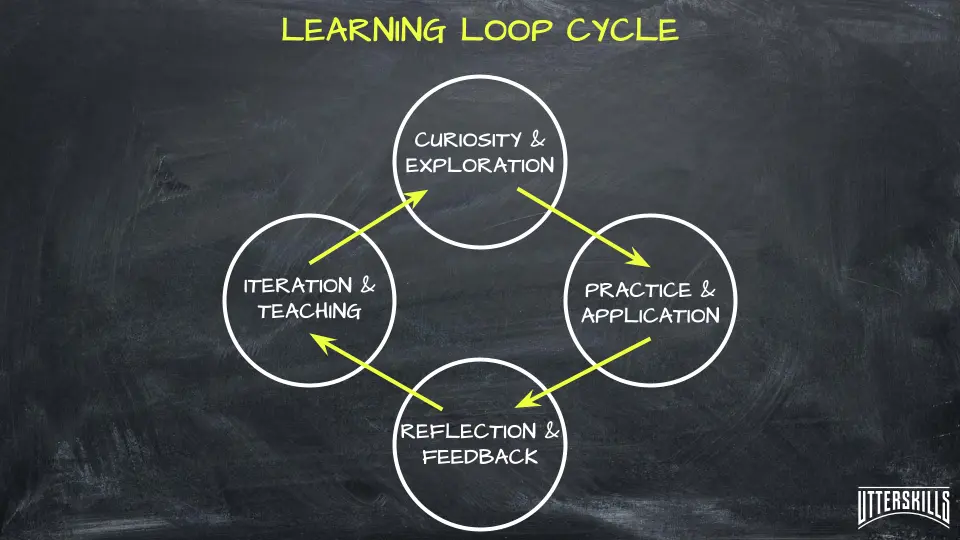“What made you valuable five years ago might not matter next year.”
Frameworks shift. Roles evolve. Workflows change with a single AI release. While technical depth still matters, the half-life of specialized knowledge is shrinking fast.
The engineers who stay relevant - the ones who keep earning trust and creating impact - aren't the ones who cling to what worked last time.
They're the ones who treat adaptability as part of the job.
Not a bonus skill. Not a future consideration. The job.
What Got You Here Won't Keep You Here
In past decades, stability was a selling point. Master a language, go deep in a domain, specialize. That mindset got us far.
But in today's environment, the rules have changed. AI accelerates execution. Tools become obsolete faster than documentation can catch up. And roles are shifting beneath your feet.
If you're solving problems the same way you did three years ago, that's not mastery - it's inertia.
Adaptability is no longer a soft skill.
It's the engineering equivalent of uptime. Without it, you go stale - no matter how technically sharp you were last year.
Learning Velocity Is Your Edge
Your next promotion won't come from what you already know.
It will come from how quickly you can learn what the moment demands.
The engineers who thrive are the ones who adapt under pressure - who ask better questions, seek faster feedback, and move through ambiguity instead of avoiding it.
This isn't about chasing trends. It's about building a system for staying sharp:
- Small, fast learning cycles.
- Staying connected to upstream context - product, business, user impact.
- Practicing reflection and deliberate unblocking instead of brute-force grinding.
The ability to learn fast and apply wisely is your most durable advantage in an industry that reinvents itself every six months.
Your Team Culture Is Your Learning System
Learning isn't just individual - it's systemic.
Teams that normalize questions, feedback, and experimentation outperform teams that chase output at all costs. They don't just absorb change - they use it.
What does that look like?
- It's safe to say “I don't know.”
- Code reviews prioritize clarity, not just correctness.
- Time is carved out for demos, feedback, and exploration.
- Curiosity is modeled by leads - not just tolerated.
This kind of collective learning habit makes teams more resilient.
It allows the group to adopt new tools, navigate change, and pivot faster than any one engineer could alone.
And if your team treats learning as a side project? You'll stagnate - together.

True adaptability happens when we cycle through curiosity, action, reflection, and iteration - and then share what we've learned.
Engineers don't just absorb change, they use it.
Unlearning Is the Most Underrated Skill
Adapting doesn't just mean adding new tools. It often means letting go of old ones.
Letting go of the patterns that used to work.
The stack you used to evangelize.
The habits that once made you fast but now hold your team back.
Some of the hardest growth moments come not from what we learn - but from what we unlearn: that ownership means doing everything yourself; that control trumps collaboration; that anything outside your comfort stack is less worthy.
Staying adaptive means staying humble.
Being willing to revise your own thinking.
Being willing to say, “That used to be right. It isn't anymore.”
That's not weakness. That's leadership.
What We Have Learned
- Adaptability is now a core engineering skill - not a bonus trait.
- Learning velocity is more valuable than fixed expertise.
- Team culture can enable or suppress collective learning.
- Unlearning outdated mental models is essential for long-term growth.
- Engineers who stay relevant are the ones who stay in motion - mentally, technically, and relationally.
Final Thought: Stay in Motion
You don't need to master every tool.
You don't need to predict every shift.
But you do need to keep evolving.
The engineers who thrive aren't the ones who knew the most last year.
They're the ones who stayed curious, stayed flexible, and kept growing - alongside the teams they work in.
You don't become “future-proof.”
You become someone who's always becoming.
That's what Skills Beyond Code are all about - and it's exactly what we help engineers build at Utterskills: careers defined not by what you know, but by how fast you evolve.
If you're serious about staying relevant, this is where your next chapter begins.